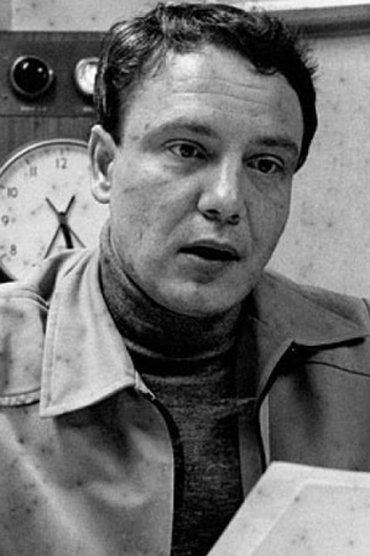
Vladimir Bukovsky
Vladimir Konstantinovich Bukovsky (Russian: Влади́мир Константи́нович Буко́вский; 30 December 1942 – 27 October 2019) was a Russian-born British human rights activist and writer. From the late 1950s to the mid-1970s, he was a prominent figure in the Soviet dissident movement, well known at home and abroad. He spent a total of twelve years in the psychiatric prison-hospitals, labour camps, and prisons of the Soviet Union during Brezhnev rule.
After being expelled from the Soviet Union in late 1976, Bukovsky remained in vocal opposition to the Soviet system and the shortcomings of its successor regimes in Russia. An activist, a writer, and a neurophysiologist, he is celebrated for his part in the campaign to expose and halt the political abuse of psychiatry in the Soviet Union.
A member of the international advisory council of the Victims of Communism Memorial Foundation, a director of the Gratitude Fund (set up in 1998 to commemorate and support former dissidents), and a member of the International Council of the New York City-based Human Rights Foundation, Bukovsky was a Senior Fellow of the Cato Institute in Washington, D.C.
In 2001, Vladimir Bukovsky received the Truman-Reagan Medal of Freedom, awarded annually since 1993 by the Victims of Communism Memorial Foundation.
In 2015 he was prosecuted in the United Kingdom on the charge of possession of child pornography, but became ill and died before the case went to trial.
Vladimir Bukovsky was born to Russian parents in the town of Belebey in the Bashkir Autonomous Soviet Socialist Republic (today the Republic of Bashkortostan in the Russian Federation), to which his family was evacuated during World War II. After the war he and his parents returned to Moscow where his father Konstantin (1908–1976) was a well-known Soviet journalist. During his last year at school Vladimir was expelled for creating and editing an unauthorised magazine. To meet the requirements to apply for a university place he completed his secondary education at evening classes. Bukovsky was enrolled at Moscow State University for biology but was kicked out at age 19, having criticised the Komsomol, i.e., the Young Communist League.
In September 1960, Bukovsky entered Moscow University to study biology. There he and some friends decided to revive the informal Mayakovsky Square poetry readings which began after a statue to the poet was unveiled in central Moscow in 1958. They made contact with earlier participants of the readings such as Vladimir Osipov, the editor of Boomerang (1960), and Yuri Galanskov who issued the Phoenix (1961), two examples of literary samizdat.
It was then that the 19-year-old Bukovsky wrote his critical notes on the Communist Youth League or Komsomol. Later, this text was given the title "Theses on the Collapse of the Komsomol" by the KGB. Bukovsky portrayed the USSR as an "illegal society" facing an acute ideological crisis. The Komsomol was "moribund", he asserted, having lost both moral and spiritual authority, and he called for its democratisation. This text, and his other activities, brought Bukovsky to the attention of the authorities. He was interrogated twice before being thrown out of the university in autumn 1961. ...
Source: Article "Vladimir Bukovsky" from Wikipedia in English, licensed under CC-BY-SA 3.0.
Known For
Acting
Born
1942-12-30
Place of Birth
Belebey, Bashkir ASSR, RSFSR, USSR [now Bashkortostan, Russia]